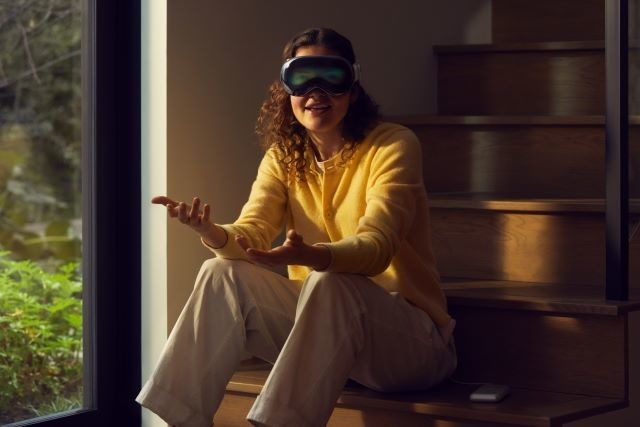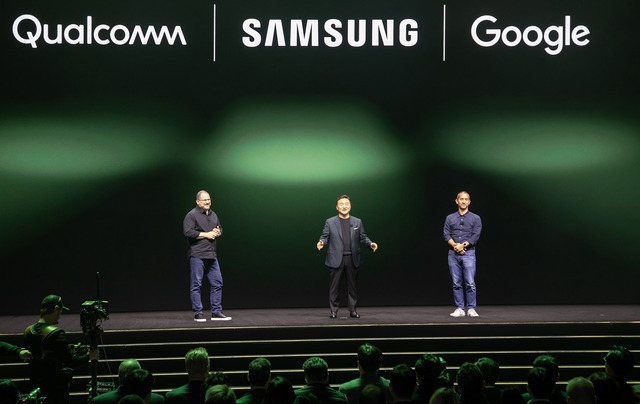Tech rivals eye big VR bets despite mixed reviews of Apple’s Vision Pro
By Jo He-rimPublished : Feb. 23, 2024 - 17:00

Less than a month has passed since the high-profile debut of Apple Vision Pro, the most advanced augmented reality headset in the market.
Despite mixed reviews, Apple's rivals seem keen to make a similar entry into the brand-new segment.
Dazzling demonstrations of the Apple Vision Pro made it look like a game changer, allowing the user to pop up their computer screens in the air, and control it with their fingertips and by moving their eyes around.
But some users have been seen returning their $3,500 device, according to a Bloomberg report, due to predictable reasons: the heavy weight of the device and lack of killer apps. Some users were disappointed with the low screen resolution, and the slow interface speed, and others suffered from physical side effects such as eye strain, dizziness and headaches.
While the first generation AR device from Apple wowed the industry with its novelty that did not match up to its cost, the question is when its archrival Samsung Electronics will introduce its virtual reality gadgets.

In February last year, the Korean tech giant announced that it was teaming up with Google and Qualcomm to build an ecosystem for extended reality -- a catch-all term for virtual reality and augmented reality.
After about a year into their trilateral agreement, Qualcomm in January launched an advanced application processor, Snapdragon XR2 Gen 2, that powers next-generation XR compatible with on-device artificial intelligence.
Samsung is expected to launch its own XR headset this year, and the envisioned product is expected to facilitate the Snapdragon's cutting-edge AP, which acts as the "brain" in IT gadgets.
Samsung also created a special task force dedicated to XR development, which is thought to have recruited some 100 key members from various divisions within the company, from technological development to marketing.
"It obviously lowers appetite for consumers when a product comes out as clumsy or too expensive for what it offers. While Apple's first device is said to have gained some fans --- it still falls far short of sales of smartphones, and it can't be said it is close to commercialization," an industry official said under the condition of anonymity.
Learning the limitations of its first device, Apple is also speculated to introduce the second-generation model of the Apple Vision Pro at least 18 months later.
Sony and Siemens have joined hands to produce a spatial VR headset aimed at industrial 3D model creation and manipulation, set to launch the product in the second half of this year.
Chinese IT firm Huawei is reportedly developing an XR headset dubbed, "Vision," expected to sell at the cost of about 15,000 yuan ($2,100), which is about half the price of Apple Pro Vision.
LG Electronics has also set up a team under its TV business that is in charge of XR technology development.
For the headsets to succeed, it is crucial for manufacturers to not only make wearing them less cumbersome, but also to secure practical content, experts say.
“Since Vision Pro is virtually the first XR device, the lack of related content is obvious. But other manufacturers like Samsung and Sony plan to introduce their own XR devices, so the one who secures the contents market first will gain an upper hand,” an industry official said on condition of anonymity.
The Global XR market is forecast to grow rapidly in the coming years. According to market tracker Counterpoint Research, the shipment unit of XR headset is expected to reach 3.9 million this year, manifesting a double-digit growth rate from last year.



















![[Today’s K-pop] Treasure to publish magazine for debut anniversary](http://res.heraldm.com/phpwas/restmb_idxmake.php?idx=642&simg=/content/image/2024/07/26/20240726050551_0.jpg&u=)